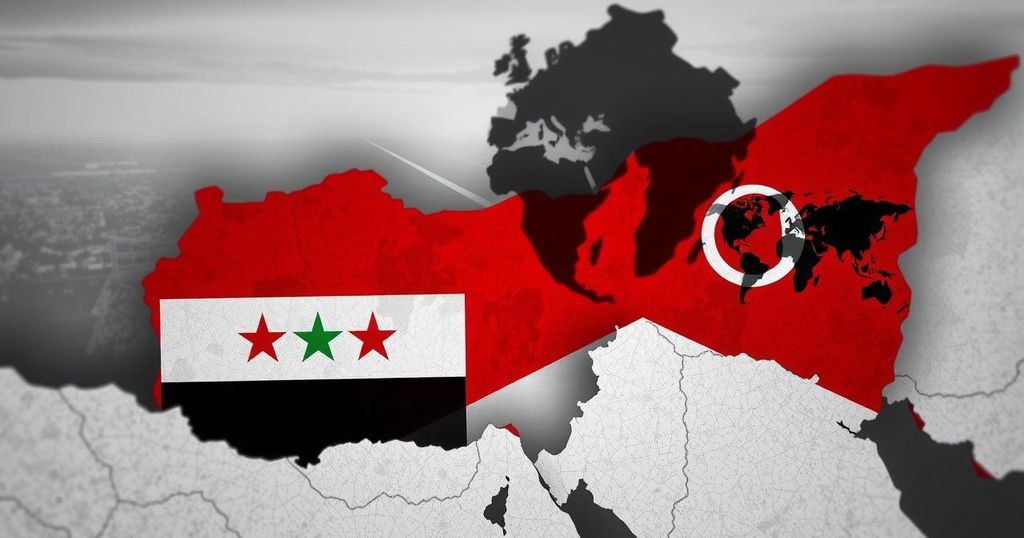Impact of Assad’s Fall on Libya: Russia’s Military Maneuvers

The downfall of Bashar al-Assad’s government in Syria poses strategic complications for Libya, as Russia adjusts its military resources in response. Moscow’s reinforcement of its military position in Libya threatens to intensify the country’s ongoing conflict, particularly with Russian support for General Khalifa Haftar. The situation casts uncertainty on the prospect of peace in Libya and highlights the challenges of foreign military presence in internal conflicts across Africa.
The recent collapse of Bashar al-Assad’s regime in Syria presents significant challenges for Libya’s political landscape. With Russia’s military foothold in Syria at risk, Moscow is reportedly transferring military assets to Libya to strengthen its African operations and mitigate the loss of its strategic presence in Syria. This shift is likely to exacerbate Libya’s enduring conflict, as Russia’s backing of General Khalifa Haftar against the UN-supported government complicates the ongoing internal crisis. Prime Minister Abdul Hamid Dabaiba firmly opposes Russian military reinforcements, highlighting the detrimental impact on Libya’s sovereignty and stability. The overall implications for Africa remain ambiguous; however, Russia’s increased entrenchment in Libya signals a continuation of foreign military involvement contrary to peace agreements. As Moscow attempts to navigate its challenges in Syria, it may further destabilize the Libyan situation by bolstering its military operations and influence, potentially prolonging the conflict and associated humanitarian concerns.
The political dynamics in Syria have a direct impact on regional security, particularly in Libya. Russia has utilized its bases in Syria as logistical support for its military engagements across Africa. The fall of the Assad regime disrupts this support system and necessitates a realignment of military resources. Libya has been a significant focus for Russia in recent years, where it has supported factions like the eastern government led by General Khalifa Haftar. Given the geopolitical stakes involved, the reallocation of Russian military assets to Libya poses risks for a country already mired in conflict.
The fall of the Assad regime in Syria represents a strategic loss for Russia, prompting a shift in military resources to Libya that could deepen the existing conflict there. Moscow’s intention to fortify its presence in Libya could further complicate intra-Libyan negotiations and peace efforts. As the situation evolves, the broader implications for regional stability remain precarious, particularly concerning African nations where Russian influence has been controversial. The future of Libya may depend on how international players, including Russia, navigate these challenges moving forward.
Original Source: issafrica.org








